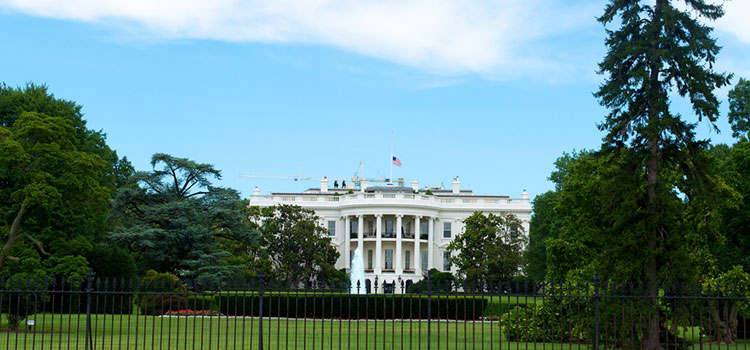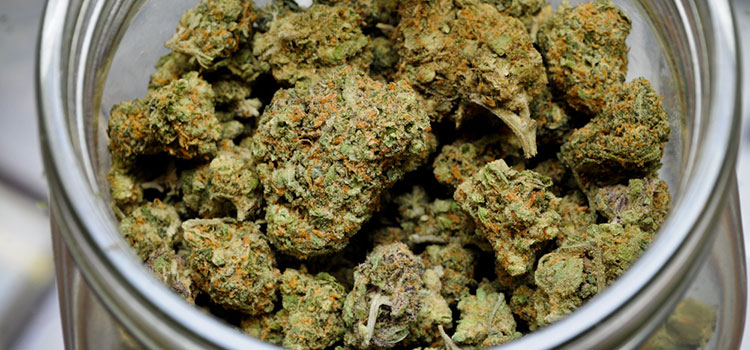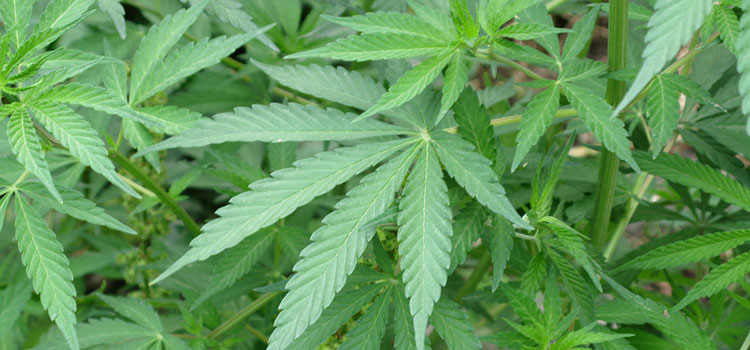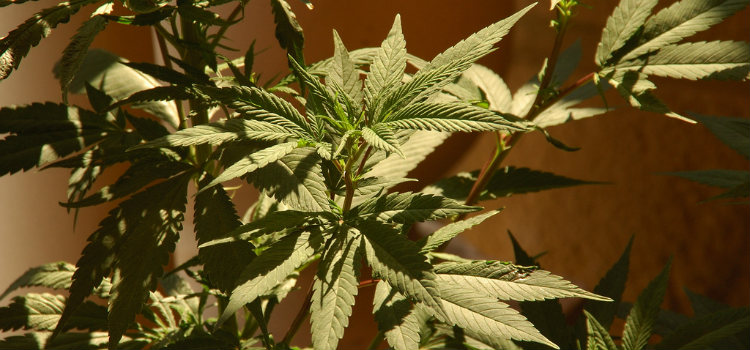 Shango Los discusses high CBD strains with Jerry Whiting of LeBlanc CNE. Jerry works in cooperation with ProjectCBD.org to develop and distribute specialty CBD strains to patients. We discuss the CBD market, specific CBD strains and how to think about CBD:THC ratios.
Shango Los discusses high CBD strains with Jerry Whiting of LeBlanc CNE. Jerry works in cooperation with ProjectCBD.org to develop and distribute specialty CBD strains to patients. We discuss the CBD market, specific CBD strains and how to think about CBD:THC ratios.
“Patients looking for CBD often want medibles, candy, or foods they can eat, or tinctures, or topical preparations. They don’t go home, fill the bong, grab the lighter and listen to Jefferson Starship.”
In the interview, Shango and Jerry talk about the unique nature of the CBD market, they discuss what the separation of Washington State’s medical and recreational markets has meant for patients seeking CBD medicines, and how the genes of individual strains determine their effectiveness at treating different conditions.
Listen to the podcast or read the full transcript below!
Subscribe to the Ganjapreneur podcast on iTunes, Stitcher, SoundCloud or Google Play.
Listen to the Podcast
Read the Transcript
Shango: Hi there and welcome to the Ganjapreneur.com podcast. I am your host, Shango Los. The Ganjapreneur.com podcast gives us an opportunity to speak directly to entrepreneurs, cannabis growers, product developers and cannabis medicine researchers all focused on making the most of cannabis normalization. As your host I do my best to bring you original cannabis industry ideas that will ignite your own entrepreneurial spark and give you actionable information to improve your business strategy and improve your health and the health of cannabis patients everywhere.
Today my guest is Jerry Whiting. Jerry was the founder of LeBlanc CNE, growers and brokers of medical cannabis and vintage heirloom cannabis strains. He also works closely with project CBD.org. Jerry has a background in acupuncture, massage, and natural healing. LeBlanc has an extensive collection of CBD-rich strains including a seed bank as well as live plants. LeBlanc has an extensive collection of CBD-rich strains including a seed bank as well as live plants. LeBlanc also sponsors a hemp breeding project, does research into the relationship between cannabis chemistry and genetics, and processes Moroccan style hash, whole plant tinctures and other cannabis preparations. Welcome, Jerry.
Jerry: Hi, Shango, how are you?
Shango: Doing great today, glad you could make it with us. Jerry, you and I talk about this all the time, but for our listeners who are still unfamiliar with CBD would you give a brief synopsis of how CBD works with terpenes to heal humans?
Jerry: Many people have focused on THC because for contemporary Americans getting high has been the goal. Indigenous cannabis has a number of compounds besides THC which is the most famous of the cannabinoids. Cannabidiol (CBD) is also quite useful for those looking for the healing properties of cannabis. When you hear about medical marijuana being used for kids with seizures it’s often CBD-rich preparations that are at the heart of that. It’s not just the cannabinoids, but the terpenes, those aromatic things that give it the smell and taste peculiar to a given strain are also part of the equation.
Shango: As more and more people learn about the health benefits of CBD alone and CBD when taken with THC as you’re describing, finding CBD plant materials is getting harder and harder to find. I know that you study the CBD market. Can you explain and describe some of the complex market dynamics that are at play right now between the medical scene that has been producing CBD historically and now the new state sponsored businesses that are starting to get into medical applications as well.
Jerry: I sometimes use corn as a counter example; popcorn, sweet corn, field corn. We all agree it’s the same plant, very different species used in very different contexts, the same with cannabis. Americans have grown marijuana to get high. Now that there’s a demand for medical patients looking for strains that are rich in CBD the market isn’t geared up to supply that part of the supply chain. Cannabis is beginning to look like any other product in the marketplace, so here you have Sanjay Gupta featuring Charlotte Figi in the use of cannabis for seizures, the VA about to give the green light for PTSD, and state after state legalizing medical marijuana.
Quite simply we’re finding just like in tennis growers are caught cross court. They have geared up and specialized in field corn and now everybody wants popcorn. You will see market forces just like any other commodity normalize the demand and the supply with prices to match. What do we see now? We see little CBD-rich cannabis in the market and that which is available is much more expensive compared to recreational pot and what I find most fascinating of all, not only is CBD-rich cannabis more expensive than THC stoner pot, but price for medical marijuana in the market is steady. There are no ups and downs, no peaks and troughs.
Shango: I know you do a lot of traveling and even though it’s probably impossible to get a snapshot of the whole cannabis market throughout the entire country, but just for our listeners what percentage of cannabis that’s produced in the country do you think is high CBD to begin with?
Jerry: I ask the question at the retail end whether it’s a dispensary geared towards medical marijuana or some of the retail stores that are popping up. I was just in Colorado last week and visited a couple. Granted the two that I visited in Denver were downtown near the stadiums and I’m sure were geared towards tourists. I saw a couple outside with their roller bags waiting for someone to make a purchase. There it’s a package store. You run in and you grab a six-pack, a bottle of wine.
It really is a recreant-oriented market, but what I’m finding is that there are dispensaries and I’m sure it will happen in the legal market as well. Those that are let’s say contrarian and gravitate towards specialized [inaudible 00:05:21] go out of their way to meet patients more than halfway. Not just have one or two things on the shelf, but to have a selection backed by a staff that knows what they’re selling and how it can best be used for individual consumers.
Shango: Up until recently where the states have started to give licenses to produce cannabis the CBD was all produced in either the medical markets or in the underground. What have you been seeing as the state starts licensing these folks and start either folding in medical producers or, as they’re doing in Washington, prohibiting the medical industry as it is right now? What are you seeing happening to the heritage CBD growers who have been growing for patients and are now being squeezed out by other folks?
Jerry: I’m not sure that medical marijuana is being squeezed out though living here in Washington state some of us feel besieged upon by Olympia. Here’s my standard message, this podcast is oriented towards people who are entrepreneurial in spirit. If many of the legal stores are grabbing the low hanging fruit and selling stoner pot, Blue Dream girl scout cookies, the usual suspects. The one person in town who decides to specialize and to do a medically-oriented retail experience has in store seminars or an email list or publishes PDFs or does talks to senior citizen homes and works with the AARP, whatever it takes, I believe that the smart money realizes that legalization won’t necessarily grow the THC recreational slice of the pie.
You’re going to find a whole new market of people who are using cannabis either again after all these years or for the very first time because there are a lot of people, baby boomers, baby boomers, baby boomers, who are getting on in age. Their bodies are telling them so and they have a pile of prescription bottles in their house they would love to get rid of, even getting rid of half of them, who looks at this as a lifestyle enhancement, not a recreational thing. Or it looks at the plant … I use the term whole plant as a double entendre way in that who says oh, yes, I could sell the highest THC for the lowest price and do coupons, et cetera, et cetera, or I could look at myself as an apothecary, a pharmacy, a compounded chemist, however you look at it.
I’m going to sell the best of breed of all the medical products available in I-502 retail in Washington or Amendment 64 out there in Colorado, but I think you’re going to see … Especially, here’s my prediction. The states that have legalized medical marijuana and have yet to legalize the full plant usage are priming the pump for CBD-rich strains when that market does go legal. The early adopters are going to be people with arthritis, fibromyalgia, Crohn’s, whatever, and they’re not looking to get high. In fact, they want cannabis medicine that will allow them to operate at full or near full functionality while relieving their symptoms.
Shango: Now that patients are starting to get the relief they’re going to be demanding it militantly, so that’s probably something that’s going to happen really swiftly. Jerry, we’re going to take a break here for a moment, but when we come back let’s talk about the different forms of CBD that it can take and how different kinds of CBD are working for different kinds of ailments, be right back.
Shango: Welcome back to the ganjapreneur.com podcast. I am your host, Shango Los and with me today is Jerry Whiting of LeBlanc CNE. Jerry, before the break we were talking about CBD plants and why they are so popular with patients and what the market for CBD is like right now because everybody is learning about the healing effects. Let’s talk a little bit about the different ways of delivery of CBD. For a lot of folks cannabis just means rolling up a joint and smoking it.
Jerry: I think it caught people in the existing cannabis markets by surprise when people began seeking out CBD-rich marijuana. I use the word marijuana deliberately because a lot of us thought and I’m guilty of this that patients were going to roll joints and sit on the back porch listening to The Dead. No, they’re patients, not recreants. There are a couple of reasons. If you’re an older AARP I want to try something for my arthritis medical marijuana patient, you’ve probably never smoked before.
There’s an image associated with stoners who lay around all day and don’t do anything productive, rolling big fat doobies or hitting a bong, and most importantly from a medical point of view patients want to take a consistent dose to relieve their symptoms, not too much, not too little. We call it titration or self-titration. It’s hard to set your dose of CBD or THC for that matter when you’re smoking, how many tokes, how big a toke, how long do you hold it, did I have a cold that day, et cetera, et cetera. Patients looking for CBD often want medibles, candy, or foods they can eat, or tinctures, or topical preparations. They don’t go home, fill the bong, grab the lighter and listen to Jefferson Starship.
Shango: I know a lot of patients, consistent dosing is important, but also they’re not in a position to be smoking anything anyway.
Jerry: Exactly, and you know as a whole, they say there’s a stigma and quite honestly there are times when patients have a compromised immune system or a breathing disorder that they present a constellation of symptoms which may discourage them from smoking. That said some practitioners now are using a mixed modality or a mixed delivery route system. Let’s say someone has a skin disorder. While you may try and get enough cannabinoids and terpenes, et cetera, et cetera onboard, by having them taking a tincture or a capsule, but being a skin disorder it makes perfect sense to rub something on it, a salve, an ointment, but some preparation that is applied to the skin.
In a similar manner those with irritable bowel syndrome or Crohn’s disease often take an oral preparation and also use a suppository. Cannabis by itself is a wonderful herb, but it also combines very well with other herbs using either a western methodology, a Chinese methodology, and an Ayurvedic methodology, but I see products in the market that I use myself occasionally that have cannabis and other botanicals in one product.
Shango: People are trying to get more of a buffet of cannabinoids by taking a little tincture, maybe a little salve. Maybe also to help with the anxiety they might actually roll a joint, too, thus taking advantage of all the different ways that cannabis can be used instead of just the traditional roll a joint and let’s get high.
Jerry: It’s the same as you catch the cold or the flu. If you’re like most people you’ve got four or five things in the medicine cabinet and depending upon whether it’s one of those drippy, runny nose things where you’ve got intestinal diarrhea stuff going on with your flu. You reach for one or more things that all came out of the same section in the drugstore or the food coop or wherever you buy that stuff. Let’s not think that there’s one answer or one tool. I think what’s interesting is that people are either revisiting recipes and preparations that have been done historically as well as bring science to bear to come up with new things all the time.
Yeah, I think you’re going to see an explosion of things and let’s hope that people in the biz, hint, hint, are going to establish brands and reputations and marketing messages and provide consistent products in the channel, so that if I get relief from a headache in March, when I go back in July the same thing is on the shelf. That’s where you differ in some sense from the recreational market. I can throw something out in the spring, when it runs out I have two more things on the market. You don’t really care when you go back to the store because hey, you’re still going to get stoned.
In the medical world when you find something that works you want more of the same and as a producer, as a marketing company, once you convert a lead into a sale and establish a reputation with your consumer you don’t want churn, you don’t want them going away. You don’t want them tempted by your competitors. I think one thing we’re going to see with normalization of marijuana, the step after legalization, if you know how to make medicine you better know how to scale it up because if you’ve been working in the medical world, and I speak from personal experience, you’re making small batches. When you have access to a whole state all of a sudden it’s not a kitchen do it yourself thing, you’re doing it on the scale of a microbrewery compared to a home brewer.
Shango: That’s well said. I really like your idea of the one size does not fit all because I listen to people on the news and they’re constantly talking about CBD as if it’s one thing and it is absolutely not one thing.
Jerry: No.
Shango: CBD is in all cannabis generally within high CBD, but within that category there are other kinds, so Jerry, why don’t you take a second and explain for folks the different applications for CBD as it’s in regular high THC cannabis versus CBD-rich which generally speaking comes in either two to one, meaning two parts CBD to one part cannabis or something more like a 15 or 18 to one because they all have different applications.
Jerry: Dr. Ethan Russo known to some of the listeners of this podcast is a medical doctor, a researcher, a brilliant mind in the world of cannabis who has investigated the difference between selective extractions, let’s say pinpointing THC alone or CBD only versus a whole plant approach, what he calls the entourage effect. That using a whole plant extract is 2.5 to three times more effective than just focusing on CBD or THC, why? Because there are 85 to 100 cannabinoids like CBD, THC, CBGs and there are up to 200 terpenes, these volatile aromatic things that give it its taste and its smell. They work together.
The analogy I use is whole wheat versus white flour. One factor in choosing the medicine that’s right for you is figuring out if you want a selective extraction or a whole plant extraction, but because the genetics dictates the chemistry, the genotype dictates the chemotype. If you’re looking for CBD you’re looking for a certain strain because of that particular strain or genotype … If the allele isn’t turned on to make CBD, I don’t care how much you fertilize it, how bright the lights, you’re not going to get it.
The first point that you need to focus on is what strain am I using. The second thing is many people hear about CBD and say that’s all I want, I don’t want to get high. CBD and THC work in tandem. Many of the components in cannabis work in harmony with each other. You raise the level of one and it has a dampening effect on something else, so it’s hard to focus on one element and one element alone and make a sophisticated and effective choice. Lastly, if you’re looking at CBD-rich preparations there are three schools of thought. The first school is I want all CBD, no THC. I want the biggest imbalance I can.
Acute conditions for people who have 200, 300 seizures a day, yes, this can be a good approach to find the greatest imbalance and the ratio of CBD to THC that you can get. You never want zero THC, why? Because 20 milligrams of CBD alone might give you ‘x’ amount of relief, but 20 milligrams of CBD with 3 or 4 milligrams of THC will give you much greater relief from your symptoms. Some people look for the imbalance. Another school of thought is one to one, a one part CBD to one part THC. Ball to the middle of the snake, it really is the safest bet for most people. There are breeders like the CBD crew whose whole catalogue is one to one.
Lastly, there’s a more nuanced approach and that is they’re different people, different symptoms, different body types. Even among the same population of folks with the same disorder they progress, they change. I have a one to two, a one to one, a two to one, a four to one, an eight to one, a 16 to one, what I call the musical note or the spectrum. Let’s start with one to one, a just up or down to figure out what ratio works for you and then the amount you can scale that up and down as well. Whether it’s all CBD, one to one, or this musical scale approach, we’re all individual and I hope the practitioners avoid being Anheuser-Busch and Coors and focus on being micros and bringing different things to market that we can sample and match to our own particular needs and our needs through time.
Shango: Great, well it’s time to take another short break. When we come back we’ll be talking about some of Jerry’s favorite CBD strains in order to prepare specific medicine. We’ll be right back.
Shango: Welcome back to the Ganjapreneur.com podcast. I am your host, Shango Los and with us today is Jerry Whiting, founder of LeBlanc CNE. We’ve been talking about CBD strains and how they can be used for different types of ailments and in what ratios to THC. Jerry, a lot of people have got their favorite CBD strains and just like THC strains, CBD strains come and go pretty quickly depending on how swiftly they’re picked up by patients and enthusiasts. What are some of your favorite present and legacy strains and what kind of strains do you see coming down the pipe?
Jerry: The venerable Harlequin came to us by way of Harborside out there in the Bay and it’s still one of my favorite strains and it’s been crossed with other things like Sour Tsunami and Cannatonic. Harlequin is still one of my favorite strains, easy to grow, great terpenes, five to two CBD to THC ratio. It’s hard to clone and it’s clone only, but if you can find it keep it alive. The other two are Sour Tsunami #3 and Cannatonic. These are the big three; Harlequin, Cannatonic, Sour Tsunami #3. They are all CBD positive, that is more CBD than THC. They have significant amounts of both, so they lend themselves well to medical use and they’ve been cross bred with other things.
Favorite strains historically. I live in Seattle. I, of course, have to root for the Puget Sound’s UW Purple Kush, a skunk works project out of the University of Washington in the mid-80s. It has been grown in Seattle ever since. Very low cannabinoid levels. As I recall 5 CBD, 3.5 THC. The terpenes are to die for. I keep the dry flower around to use at the very end as a brewer would use finishing hops. I use it just to strip the terpenes, lovely plant. Blue Dynamite is an odd one, it has a funny color, 2.5 to one CBD to THC. I underestimated until I smoked it. I now have great respect for it.
Here’s the deal, you don’t know what you have until it has been tested by a lab doing chromatography, gas or high-performance liquid chromatography to tell you what’s in it because that’s the only way you can really be sure. If it’s recreational it didn’t work, that’s okay. If it’s medical and doesn’t work you’re still in pain. I have found that with cannabis restrictions, strains don’t travel very far, so what you find locally may be different from what I see here in Washington State. Ask around, look for the lab work, and when you find it don’t forget to share it.
Shango: Jerry, what do you think about these states that are passing CBD only laws where they’re like, okay, you can’t grow or have cannabis that’s got THC or is THC-heavy if it’s just CBD with sub three percent THC that you can use this.
Jerry: Right, it’s an artificial line in the sand that’s been drawn by state legislatures who are, God bless them, doing their best to bring medicine to especially kids with epilepsy, and as a father of two kids with epilepsy I’m in the audience yelling and screaming as loud as I can in support of these efforts, but that’s the first step in the conversation. I look at high CBD, diagnoses like epilepsy as a foot in the door. We’ve gotten America’s attention, most Americans want the war on drugs to end, and more and more people who would have surprised even themselves five years ago are on the right side.
What we need to do is to continue to educate politicians and policy makers that it is a whole plant. There’s a number of things in there and as we move forward I think we will see laws and policies that are less restrictive, but it goes back to what Russo calls the entourage effect, what I call the cannabis cocktail. You need the whole plant. It’s like saying red wine is legal, but white wine and champagne are still against the law. Are you kidding me? Really, it’s the same thing.
Shango: During the half hour we’ve been chatting we’ve hit just barely the surface of CBD. If anything we’ve probably lit up people’s curiosity to know more. They’d like to hear us go for another hour. How about giving folks a place that they can go to get really accurate CBD information because we know the Internet is awash with bad information. As an expert on CBD where can you send people where they can get reliable information?
Jerry: The most reliable source is Project CBD. Project CBD is like the watering hole in the desert and it’s the inspiration and the well spring for so many of us. Martin Lee, an old, old friend of mine for years and years runs Project CBD and his website is a wealth of information and a wealth of links and resources to other places. The second place is O’Shaugnessy’s. Fred Gardner’s been doing cannabis as medicine in the Bay Area before any of us and Fred has a site that’s more science-oriented, a wealth of information.
I have a website, LeBlancCNE, L-e-B-l-a-n-cCNE.com. I try to give people how to’s. I teach a class called the hacking cannabis do it yourself kitchen chemistry. My idea is that healthcare is a right not a privilege and that patients can take control of not just the plant, but the preparations and their own dosage. I have instructions on how to decarboxylate pot, how to make infused butter or infused coconut oil or tinctures and it’s just a starting point because none of us have the whole picture, so if you started Project CBD and O’Shaughnessy’s and Hemp Truth as a foundation you won’t go far. One last thing I would recommend is Smoke Signals, Martin A. Lee, A Social History of Marijuana in America. I’ve read it a couple of times, you can’t go wrong.
Shango: Jerry, thanks for chatting with us. It was really helpful to take our conversation that you and I have offline all the time and to be able to open it up for other folks to be able to find out more about CBD. You can find the ganjapreneur.com podcast right here on Cannabis Radio. You can subscribe to the podcast in the Apple iTunes Store or you can listen and read the interview transcripts on our home website at Ganjapreneur.com. Thanks, Debrasco, for producing the show. I’m your host, Shango Los.

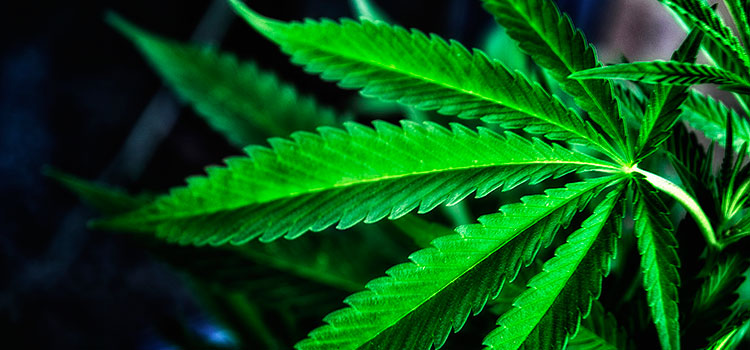






 Shango Los discusses high CBD strains with Jerry Whiting of
Shango Los discusses high CBD strains with Jerry Whiting of 